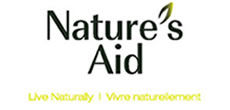Youthful nature
Chloe Dragon Smith’s love for nature has been shaped by her Indigenous heritage and strong female influences. In a recent interview with Chloe, The Nature Conservancy of Canada's Editorial Coordinator, Raechel Bonomo discussed her motivators, her work toward spreading conservation awareness and getting youth outside to explore nature and her unique connection to the great outdoors:
Raechel Bonomo (RB): How did growing up in Yellowknife foster your love for nature?
Chloe Dragon Smith (CDS): “I feel really lucky to have grown up here. It’s a small city, but it’s really close to the land. You can take a canoe and paddle out of the city and within five minutes and be completely alone in nature.”
RB: What is your first memory in or of nature?
CDS: “Most of my memories of nature are from my family’s cabin out on the Taulson River in the southeastern Northwestern Territories near Fort Smith. [The cabin] is so isolated that you have to fly to it in a floatplane. It’s where we go to harvest the land.
“When we are out there, we really immerse ourselves in nature and live connected to the land. We go out to get our food for the winter, get wood to keep us warm and get fur to make clothes. Being outside and developing these skills to live on the land is integrated as part of our lives as a family."
RB: What aspects of your Chipewyan heritage have inspired your passion for getting outdoors and experiencing Canadian landscapes?
CDS: “I have met numerous elders who were born just somewhere on the land. People live so close with the land that they name their children after the rivers they were born on. There’s closeness forged when people are having their children on the land and still living nomadically. That culture is still really close to the surface up here.
“Indigenous people have different world views and different values when it comes to nature. I think that really comes from that deep relationship with the land that we’re not that far away from. What every Indigenous person in Canada can be proud of is that our genetics are tied to this land. This cultural context shaped me as a person, shaped my values and shaped my life.”
RB: You’ve been instrumental in developing The Nature Playbook with the Canadian Parks Council. Can you tell me about that process and how the playbook came to be?
CDS: “It came from the recognition that we are all nature. There are as many ways to connect to nature as there are people in the world, and they’re all valid.
“As a young person, it’s sometimes hard to be in a group and to have your ideas heard. I’ve been there. There are many different types of young people with many different thoughts and a lot of depth. To truly have this representation we needed the group to be half-and-half.
“The playbook was modelled loosely around Nature for All — a global movement to get people into nature — to keep the book relevant internationally, but with a few national-specific tips as well. This meant integrating Indigenous ideals about nature, similar to those I experienced in Yellowknife, into a plan for all Canadians.
“The fifth strategy in the book is called ‘Share cultural roots and ancestry in nature,’ which has to do with adopting Indigenous values in regards to the land. We decided to add this strategy to the six that were already established internationally. We were really proud to hear that they [Nature for All] were adopting it. It was a really special moment.”
RB: Congratulations on being the first Young Women for Nature recipient! What does this recognition mean to you?
CDS: “This award made me think of the women in my life who have been so important in shaping my views. I can look to my mom, who is my biggest mentor, and my setsuné (which is “grandma,” in Chipewyan. They’re so accepting, beautiful and strong. They have taught me what it means to be a woman in nature.
“A quote that my Setsuné says, which I really love, is that ‘culture is who you are and how you live your life. We start to put boxes on our identity and that’s not very helpful. That’s why the land is so important; it’s such a great equalizer for humanity – for Indigenous people and for all Canadians.”




